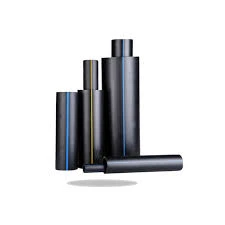Aug . 09, 2024 02:45 Back to list
High-Quality PVC Sheet Panels for Versatile Applications in Construction and Design Projects
The Versatility of PVC Sheet Panels
In the realm of construction and interior design, material selection plays a crucial role in achieving durability, aesthetics, and functionality. Among the plethora of materials available today, PVC (Polyvinyl Chloride) sheet panels have emerged as a popular choice due to their numerous advantages. These synthetic materials not only meet the demands of modern architecture but also offer cost-effective solutions for various applications.
Properties of PVC Sheet Panels
PVC sheet panels are renowned for their excellent durability and resistance to weathering, chemicals, and moisture. Unlike wood and other natural materials that may warp, crack, or swell over time, PVC panels maintain their structural integrity under a variety of environmental conditions. This makes them an ideal choice for both indoor and outdoor applications. The lightweight nature of PVC allows for easy handling and installation, significantly reducing labor costs and time. Additionally, PVC panels are available in a variety of colors and finishes, offering a wide scope for design flexibility.
Applications in Construction and Interiors
One of the most common applications of PVC sheet panels is in wall cladding. In commercial spaces like restaurants, hospitals, and schools, these panels provide an easy-to-clean surface that is resistant to stains and bacteria. This characteristic is particularly important in settings where hygiene is a concern. Furthermore, PVC panels can also be used in decorative applications, allowing designers to create visually appealing spaces with minimal effort.
Another popular application is in the realm of signage. PVC panels are often used for outdoor signs due to their weather resistance and ability to hold vibrant colors. Whether for advertisements, informational signage, or directional signs, PVC panels provide a long-lasting and visually engaging solution.
pvc sheet panel

Additionally, PVC sheet panels can serve as an excellent alternative to traditional materials in the making of furniture. From cabinets to shelves, the lightweight and versatile nature of PVC makes it an attractive option for modern designers focused on sustainability and efficiency.
Benefits of Using PVC Sheet Panels
The advantages of using PVC sheet panels go beyond aesthetics and structural integrity. One significant benefit is their low maintenance requirements. Unlike wood or metal materials that may require regular painting, varnishing, or sealing, PVC panels can simply be wiped clean with a damp cloth. This factor not only ensures the longevity of the panels but also contributes to significant cost savings over time.
Moreover, PVC is a recyclable material, aligning with the growing emphasis on sustainability in the building industry. By choosing PVC panels, builders and designers can reduce their environmental footprint, making it an ethical choice for conscientious consumers.
Conclusion
As the construction and design industries continue to evolve, the demand for materials that are both functional and environmentally friendly is on the rise. PVC sheet panels exemplify this trend, offering a versatile, durable, and stylish solution for various applications. Whether for cladding, signage, or furniture, these panels meet the diverse needs of modern architecture while providing an eco-conscious alternative to traditional materials. Their unique combination of properties and benefits positions PVC sheet panels as a leading material choice for anyone looking to enhance their space with style and practicality.
-
HDPE Pipe Fittings: Durable, Leak-Proof Solutions
NewsAug.16,2025
-
Premium CPVC Sheet: High-Temp & Chemical Resistant Solutions
NewsAug.15,2025
-
Durable PPR Pipe for Hot & Cold Water Systems - Easy Install
NewsAug.14,2025
-
Durable HDPE Sheet | Versatile & Impact-Resistant Plastic
NewsAug.13,2025
-
Premium PVC Soft Sheets: Clear, Flexible & Durable
NewsAug.12,2025
-
Premium PVC Round Rods: Durable, Chemical Resistant, Easy to Machine
NewsAug.11,2025

